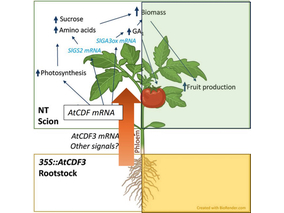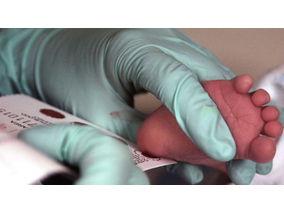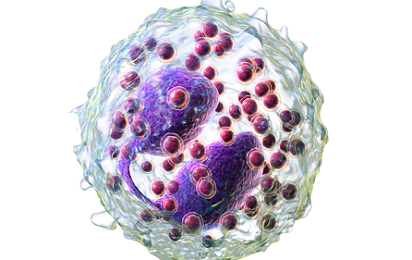In order to maintain genome stability in the cells the enzyme TLK2 constantly strives to attach phosphate to proteins. It activates specific functions in the cell and helps to stabilise the cell nucleus, which is of critical importance. In recent years the enzyme has been linked to various diseases. For example, researchers have discovered that the gene coding for the enzyme is overexpressed in patients suffering from ER-positive breast cancer and mutated in intellectual disability, but up until now no one has been able to outline the behaviour of the enzyme.
Now researchers from the University of Copenhagen in collaboration with Travis Stacker form the the Genomic Instability and Cancer Lab in the Institute for Research in Biomedicine (IRB Barcelona) have taken a big step forward and managed to outline the enzyme all the way to the molecular level using X-ray crystallography.
Their study, published in the scientific journal Nature Communications, suggests that the enzyme activity diminishes in patients suffering from intellectual disability. Conversely, it seems to be possible to inhibit the enzyme in patients with breast cancer, where it is overactive.
The researchers have studied the enzyme in detail at molecular level. They have used biochemical methods and advanced techniques within molecular biophysics to produce a so-called molecular description of the enzyme’s crystal structure. This is important because it gives the researchers insight into the behaviour of the enzyme at atomic level.
Go to the complete press release (University of Copenhaguen)
(Source: University of Copenhaguen)

The research team observed changes in head circumf...

AtCDF3 gene induced greater production of sugars a...

Un estudio con datos de los últimos 35 años, ind...

En nuestro post hablamos sobre este interesante tipo de célula del...

Researchers have confirmed that patients with NK lymphocytes present i...
Biotechnology portal in Spain
Subscribe to our newsletter and stay up to date with the latest news and deals!
2013 © Biotech-Spain.com - Site Developments SL. All Rights Reserved. Terms of Service | Privacy Policy
Articles
Directory
